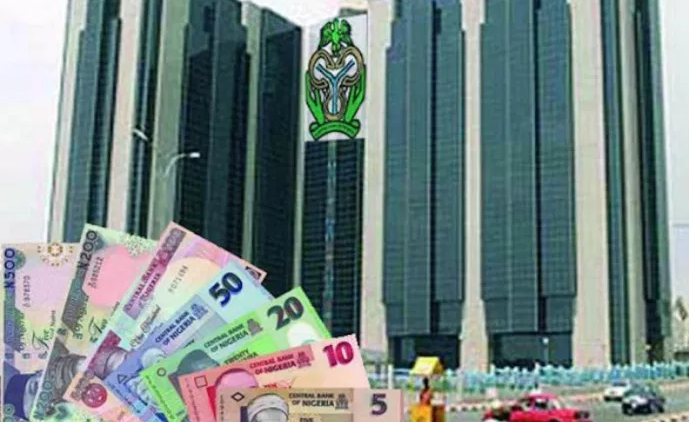OPS, Analysts Back CBN’s Measure To Boost Diaspora Remittances

Members of the organised private sector (OPS) and some analysts have hailed the newly-introduced ‘Naira 4 Dollar Scheme’ of the Central Bank of Nigeria (CBN).
The OPS members and the analysts, in separate interviews with Flavision anticipated that the scheme would help improve diaspora remittances through the official channels by about 30 per cent.
The CBN, in a circular dated March 5, 2021, and signed by Mr. A.S. Jibrin, on behalf of the Director, Trade and Exchange Department, had said the new initiative would become effective today and would last till May 8, 2021.
In line with this initiative, all recipients of diaspora remittances through CBN’s licensed International Money Transfer Operators (IMTOs) shall henceforth be paid N5 for every $1 received as remittance inflow.
The apex bank, in the circular, said: “The CBN shall through commercial banks, pay to remittance recipients the incentive of N5 for every $1 remitted by a sender and collected by the designated beneficiary.
This incentive is to be paid to recipients whether they choose to collect the United States dollar as cash across the counter in a bank or transfer same into their domiciliary account. In effect, a typical recipient of diaspora remittances will at the point of collection, receive not only the USD sent from abroad but also the additional N5 per USD received.
Commenting on the new policy, the Director-General of the Lagos Chamber of Commerce and Industry (LCCI), Dr. Muda Yusuf, told Flavision yesterday that the CBN deserved to be commended for the policy, which he described as a laudable move to encourage foreign exchange inflows into the economy and ease the current liquidity challenges in the country’s foreign exchange market.
Muda said:
This would surely have a positive impact on inflows and ultimately on the exchange rate. But the CBN should go a step further by allowing exporters unfettered access to their export proceeds, whether in foreign exchange or Naira.
The current practice of imposing the NAFEX rate on export proceeds should be discontinued in the spirit of the current move to provide an incentive for foreign exchange inflows.
Similarly, FDIs and FPIs should be allowed greater flexibility in conversion rates of their inflows. A combination of these supply-side strategies would have a remarkable impact on foreign reserves, forex liquidity, and the Naira exchange rate.
Similarly, the Director-General of the Nigerian Association of Chamber of Commerce, Industry, Mines and Agriculture (NACCIMA), Ambassador Ayo Olukanni, stated that the new scheme would have a positive impact on Nigeria’s modest exit from recession, boost foreign exchange input and reduce the pressure on the Naira.
Olukanni, however, called for the introduction of a similar scheme in order to attract proceeds from non-oil exports’ earnings.
He said:
We are of the view that other areas which deserve attention in the quest to increase forex inflow is our non-oil exports which are yet to be fully tapped due to reasons we all know.
We hope to see appropriate incentives to boost foreign exchange by scaling up our non-oil exports as we grapple with what should be done to ensure the inflow of forex and also shore up the Naira.
An Associate Professor of Economics at the Lagos Business School, Dr. Bongo Adi, commended the initiative.
Adi said:
This is a good and welcomed initiative although we might have to contend with the fact that it is sort of a devaluation of the currency.
If you look at the macroeconomics of it, a lot of Nigerians in the diaspora have attachments back home and that has been why remittances have been a major source of Nigeria’s foreign exchange supply. If I were sending $1 and I can get more naira, I would be encouraged to send in more money and keep here.
Also, the Head of Research of the United Capital, Mr. Wale Olusi, said the scheme would discourage patronage of the parallel market and would be a game-changer in revamping the economy.
Olusi said:
If the exchange rate is N410, the CBN is offering an additional N5 premium on dollar deposit from remittances. This will lure people from the parallel market and hoarding the dollar remittances to the official market where they can get N415.
Moreover, the cost per transactions would be 1.2% compared to 10% rate on OMO bills, which is very cheap and this introduces an incentive for Nigerians to deposit dollars into the system through remittances.
I guess it’s cheaper than OMO to foreign portfolio investors (FPIs). If it works it may actually trigger the much-needed convergence of FX rate in the currency market.
He said since remittances into Nigeria from abroad was over $20 billion yearly, the policy might change the game, if effectively implemented.
He, however, noted that the downside to the policy would be if the parallel market could sell at a higher rate than the official rate.

Justin Nwosu is the founder and publisher of Flavision. His core interest is in writing unbiased news about Nigeria in particular and Africa in general. He’s a strong adherent of investigative journalism, with a bent on exposing corruption, abuse of power and societal ills.













